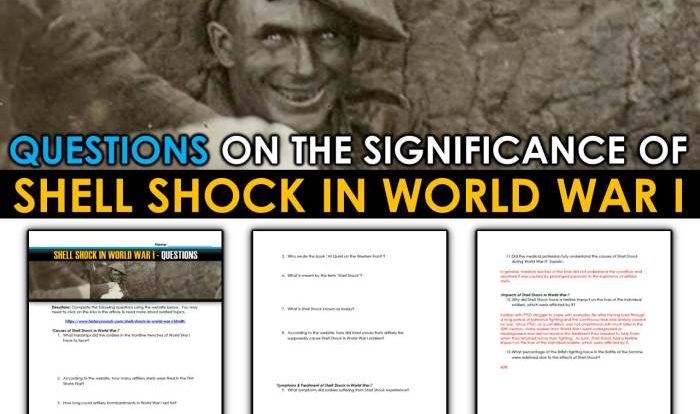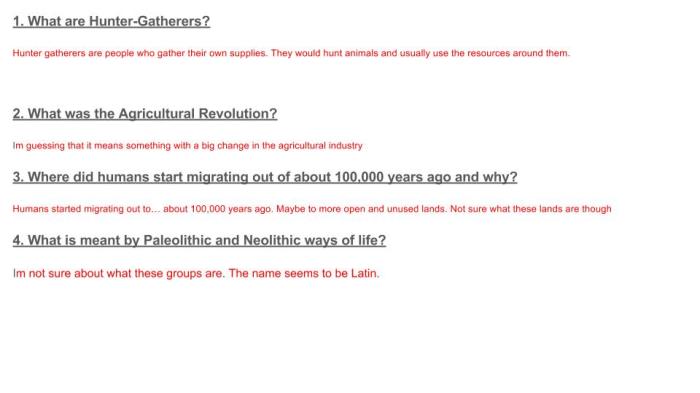Why study history by peter stearns – In his seminal work, “Why Study History,” Peter Stearns presents a compelling argument for the enduring importance of historical knowledge in the modern world. Drawing upon decades of research and experience, Stearns asserts that history is not merely a collection of dusty facts but rather a vital tool for understanding ourselves, our societies, and the challenges we face today.
Stearns argues that history provides us with a unique perspective on human experience, allowing us to learn from the mistakes and successes of the past. By studying history, we gain insights into the complexities of social, political, and economic systems, and we develop a deeper appreciation for the diversity of human cultures and perspectives.
Historical Context
Peter Stearns’ work on the study of history is situated within the context of significant historiographical debates and trends that shaped the discipline in the late 20th and early 21st centuries.
One of the key debates during this period was the “linguistic turn” in history, which emphasized the role of language and discourse in shaping historical narratives. This led to a greater focus on the ways in which historians construct and interpret the past, as well as on the role of subjectivity and bias in historical writing.
Historiography
Stearns’ work was also influenced by the rise of “new social history,” which shifted the focus of historical inquiry away from political and military elites towards the experiences of ordinary people. This led to a greater emphasis on social and cultural history, as well as on the role of gender, race, and class in shaping the past.
Global History
Another important trend during this period was the increasing emphasis on global history, which sought to transcend national and regional boundaries in order to understand the interconnectedness of the world. Stearns’ work on globalization and the history of world cultures reflects this trend.
Stearns’ Argument for Studying History: Why Study History By Peter Stearns
Stearns believes that studying history is essential for understanding the present and shaping the future. He argues that history provides us with a wealth of knowledge and insights that can help us make better decisions and avoid repeating the mistakes of the past.
History Provides Perspective
One of the main benefits of studying history is that it gives us perspective. By learning about the past, we can see how our present situation came to be and understand the forces that have shaped our world. This perspective can help us make better decisions about the future, as we can avoid repeating the mistakes of the past and learn from the successes of others.
History Teaches Us About Human Nature
History also teaches us about human nature. By studying the past, we can see how people have behaved in different situations and under different circumstances. This knowledge can help us understand ourselves and others better, and make more informed decisions about how to interact with the world.
History Helps Us Understand Current Events
Finally, history can help us understand current events. By learning about the past, we can see how similar events have played out in the past and identify the patterns that are likely to repeat themselves. This knowledge can help us make better sense of the present and make more informed decisions about the future.
The Value of Historical Knowledge
Historical knowledge serves as an invaluable tool for understanding the complexities of the present and shaping our future. It provides insights into the human experience, the patterns of history, and the consequences of decisions made in the past.
Historical understanding empowers individuals to make informed decisions, solve problems, and navigate the challenges of the present. By studying the successes and failures of past societies, we can learn from their mistakes and apply their lessons to contemporary issues.
Decision-Making
Historical knowledge enables decision-makers to assess the potential outcomes of their actions by providing a broader perspective and context. It helps them identify historical precedents, analyze the consequences of similar decisions in the past, and make informed choices that are rooted in a deep understanding of the past.
Problem-Solving
History offers a wealth of examples of how problems have been solved or exacerbated in the past. By studying these cases, individuals can identify patterns, develop strategies, and anticipate potential pitfalls. Historical knowledge can provide valuable insights into the root causes of problems and suggest effective solutions.
History as a Tool for Understanding Change
History offers a unique perspective on the processes of change over time. By examining the past, we can identify patterns, trends, and factors that have shaped our present and can inform our understanding of the future. Historical analysis helps us comprehend the complexities of social, political, and economic transformations, enabling us to make informed decisions and navigate the challenges of an ever-changing world.
Social Change, Why study history by peter stearns
Historical analysis sheds light on the evolution of social structures, norms, and values. By studying past societies, we can trace the origins of current social institutions, understand the forces that have driven social movements, and anticipate potential trajectories for future social change.
For instance, examining the history of the civil rights movement in the United States provides insights into the processes of social activism, the impact of collective action, and the long-term consequences of fighting for equality.
Political Change
History helps us understand the dynamics of political power, the rise and fall of governments, and the evolution of political ideologies. By analyzing past political events, we can identify factors that contribute to political stability or instability, evaluate the effectiveness of different forms of government, and anticipate potential political shifts.
For example, studying the history of the Cold War provides a deeper understanding of the tensions between superpowers, the role of nuclear weapons in international relations, and the impact of geopolitical alliances on global affairs.
Economic Change
Historical analysis provides valuable insights into the evolution of economic systems, the drivers of economic growth, and the consequences of economic policies. By examining past economic transformations, we can identify the factors that have led to economic prosperity or decline, understand the role of technology in economic development, and anticipate potential economic challenges.
For instance, studying the history of the Industrial Revolution offers lessons about the impact of technological innovation on labor markets, the rise of capitalism, and the emergence of modern economic systems.
The Ethical and Civic Importance of History
Studying history carries ethical and civic responsibilities that extend beyond academic pursuits. Historical knowledge empowers us to grapple with complex moral dilemmas, understand the origins of contemporary issues, and actively participate in shaping a just and equitable society.
Historical Knowledge Promotes Empathy and Tolerance
History exposes us to diverse perspectives, allowing us to understand the experiences and motivations of individuals and groups across time and cultures. By fostering empathy, history helps us bridge divides and cultivate a spirit of tolerance and understanding towards others.
Historical Knowledge Enhances Critical Thinking
History teaches us to critically analyze sources, identify biases, and evaluate evidence. By developing these skills, we become more discerning consumers of information and can make informed decisions based on a comprehensive understanding of the past and present.
Historical Knowledge Informs Civic Engagement
History provides a foundation for understanding the political, economic, and social systems that shape our societies. This knowledge empowers us to engage effectively in civic life, make informed decisions about public policy, and advocate for change based on lessons learned from the past.
Challenges and Controversies in the Study of History
The study of history is not without its challenges and controversies. Historians grapple with issues of objectivity, bias, and the relevance of historical knowledge.
Objectivity and Bias
One of the central challenges in the study of history is the question of objectivity. Can historians ever truly be objective in their accounts of the past? Or are all historical narratives inevitably shaped by the biases of the historians who write them?
There is no easy answer to this question. However, most historians believe that it is possible to strive for objectivity, even if it is never fully attainable. By carefully weighing the evidence and considering multiple perspectives, historians can produce accounts of the past that are as accurate and unbiased as possible.
Relevance
Another challenge facing historians is the question of relevance. Why should we study history? What value does it have for our lives today?
There are many reasons why history is relevant to our lives today. First, history can help us to understand the present. By studying the past, we can see how the world has changed and how the decisions of our ancestors have shaped our present.
This knowledge can help us to make better decisions for the future.
Second, history can help us to develop critical thinking skills. By examining historical evidence and weighing different perspectives, we can learn to think critically about the world around us. This skill is essential for making informed decisions in our personal lives and as citizens.
Q&A
Why is it important to study history?
History provides us with a unique perspective on human experience, allowing us to learn from the mistakes and successes of the past. By studying history, we gain insights into the complexities of social, political, and economic systems, and we develop a deeper appreciation for the diversity of human cultures and perspectives.
What are the benefits of studying history?
Studying history can improve our critical thinking skills, our understanding of current events, and our ability to make informed decisions. It can also help us develop a sense of empathy and tolerance for others.
What are the challenges of studying history?
One of the challenges of studying history is that it can be difficult to separate fact from fiction. Historians often rely on incomplete or biased sources, and they must be careful not to let their own biases influence their interpretations of the past.

